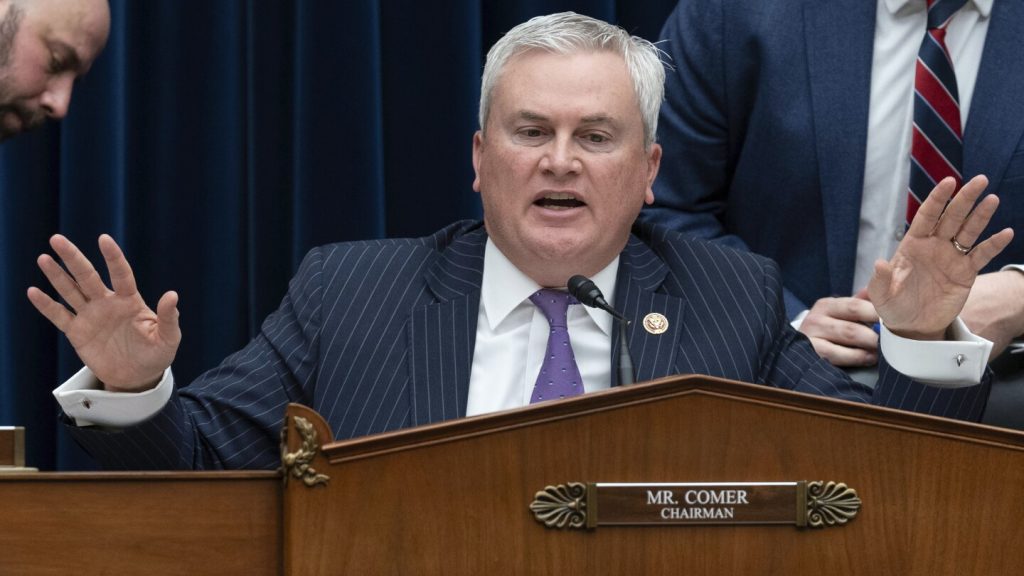A bipartisan legislation was introduced in the House that would require presidents and vice presidents to publicly disclose tax returns before, during, and after their time in the White House. Led by Republican Rep. James Comer and Democratic Rep. Katie Porter, the proposal is aimed at increasing transparency and addressing concerns surrounding foreign influence in American politics. This legislation comes amidst congressional investigations into the leading candidates for the White House and reflects a bipartisan appetite for revising presidential ethics rules.
Democrats introduced a rival legislation enforcing the Constitution’s ban on emoluments, which prohibits a president from accepting foreign gifts and money without Congress’ permission. Supporters of this proposal argue that former President Donald Trump violated this clause by accepting foreign gifts while in office. The dueling bills signal a bipartisan interest in revising presidential ethics rules, but the proposals are entangled in partisan disputes surrounding the conduct of Trump and current President Joe Biden.
The White House stated that President Biden has already complied with many of the provisions outlined in the legislation and remains committed to upholding strong ethical standards. Republican Rep. James Comer and Democratic Rep. Katie Porter’s proposal emphasizes transparency, requiring the disclosure of foreign payments, gifts, and loans to officials’ immediate family members. This legislation directly responds to concerns regarding the business dealings of Trump’s children and Biden’s son, highlighting the differences in financial disclosure practices between the two presidents.
Comer, who chairs the House Oversight and Accountability Committee, stated that the legislation aims to prevent presidents, vice presidents, and their family members from profiting from their positions of power. Democrats on the committee have raised concerns about the Biden family allegedly trading on the president’s name, but there is no concrete evidence to support these claims. On the other hand, a report released by Democrats in January revealed that Trump’s businesses received millions from foreign governments during his presidency, raising ethical questions about potential influence on U.S. policy.
Critics have condemned Trump’s decision to retain his business empire while in office, arguing that it provided ample opportunities for foreign entities to influence US policy through financial transactions. Trump and his legal team have defended his actions, claiming that the emoluments clauses were not intended to cover fair-value transactions between a business and its customers. The ongoing debate over presidential ethics and financial transparency highlights the need for legislative action to prevent future exploitation of the presidency for personal gain by officials and their family members. It remains to be seen whether any of these proposals will pass Congress and become law.


